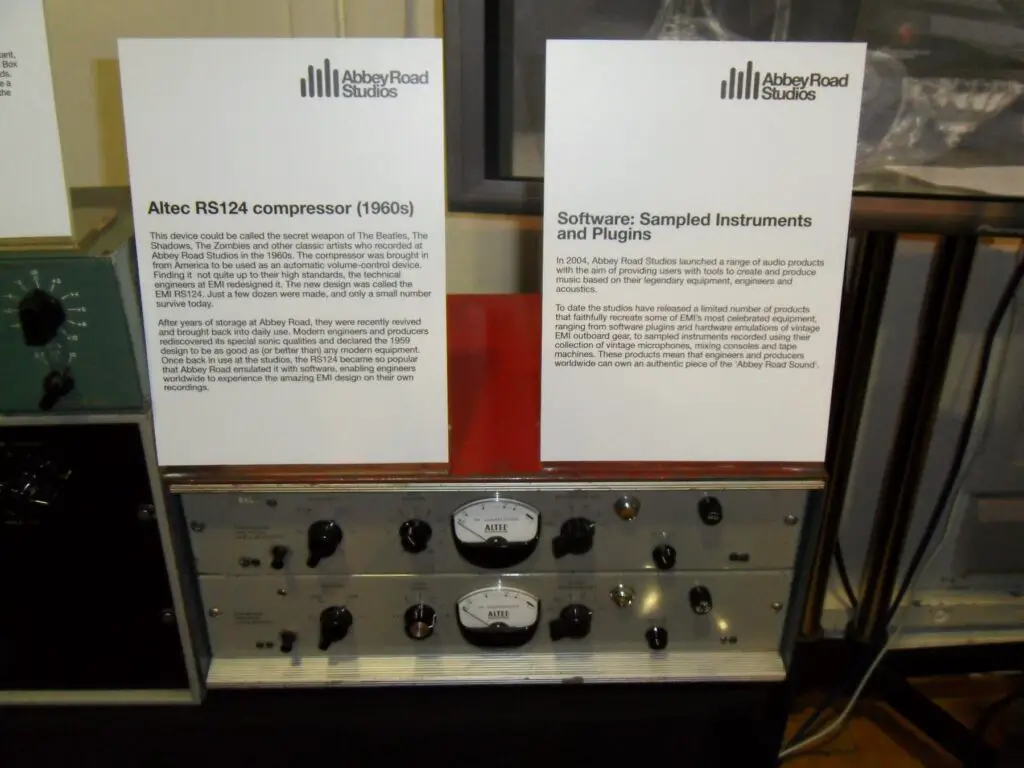What is the best computer for music production? Choosing the right computer is crucial for music producers who want to create high-quality tracks with minimal latency. With so many options available on the market, finding the computer that is right for you can be challenging. In this article, we will provide an overview of the top 4 recommended computers for music production in 2021, along with a breakdown of the essential components to consider when selecting a computer. Whether you’re a beginner or a seasoned professional, we’ll help you find the best computer to meet your music production needs.
Table of Contents
What to Consider When Choosing a Computer for Music Production
Choosing the right computer for music production can be a daunting task, but don’t worry! We’ve got you covered with the most important factors to keep in mind when making your decision.
Processor
The processor is the brain of your computer and can make a significant impact on the speed and efficiency of your music production. A fast processor, such as an Intel Core i5, i7, or i9, can handle the complex tasks required for music production and reduce the risk of crashes or freezes. We recommend a quad-core or higher processor for optimal performance.
RAM
RAM, or Random Access Memory, is crucial for running multiple programs simultaneously without slowing down your computer. When it comes to music production, the more RAM you have, the better. We recommend at least 8GB of RAM, but 16GB or more is ideal for running multiple music projects and samples simultaneously.
Storage
Storage is where your computer stores your music projects, samples, and plugins. A Solid-state drive (SSD) is faster and more reliable than a traditional hard drive (HDD), making it the ideal choice for music production. We recommend at least 256GB of storage, but 512GB or more is preferable for storing large music projects.
Graphics Card
While a dedicated graphics card isn’t critical for music production, it can improve performance when working with video editing or graphic design software. We recommend a dedicated graphics card with at least 2GB of VRAM for optimal performance.
Display
A high-quality display can make a huge difference in your music production workflow, especially if you spend long hours staring at your screen. Look for a display with a high resolution, good color accuracy, and a comfortable viewing angle. A 15-inch or larger display is ideal for music production.
Connectivity
Having the right connectivity options is essential for connecting all your peripherals. Look for a computer with plenty of USB ports, Thunderbolt 3 ports, and an SD card reader. Thunderbolt connectivity is an excellent choice for connecting high-speed external drives and audio interfaces, making it ideal for music production.
Audio Input/Output
High-quality audio input and output are crucial for music production. Look for a computer with a dedicated audio interface or high-quality built-in audio components, as well as support for ASIO drivers. This will allow you to record and listen to high-quality audio without any latency issues.

Recommended Computers for Music Production
When looking for the best computer for music production, it can be overwhelming to sift through the many options available on the market. After extensive research and testing, we’ve narrowed down our top four picks for the best computers for music production in 2021.
1. Macbook Pro
The Macbook Pro is a popular choice among music producers, thanks to its powerful hardware, reliable software, and sleek design. The latest Macbook Pro models feature Intel Core i9 processors, up to 64GB of RAM, and up to 8TB of SSD storage. They also come with a high-quality Retina display, four Thunderbolt 3 ports, and a headphone jack. With these specs, the Macbook Pro can handle even the most demanding audio production tasks with ease.
2. Dell XPS 15
The Dell XPS 15 is a Windows-based laptop that offers impressive performance and value for money. It features an Intel Core i7 processor, up to 32GB of RAM, and up to 1TB of SSD storage. It also has a 15.6-inch 4K OLED display, a dedicated NVIDIA graphics card, and a range of connectivity options, including Thunderbolt 3 and USB-C ports. The Dell XPS 15 is a great option for music producers who prefer the Windows operating system.
3. HP Envy 17
The HP Envy 17 is a powerful and stylish laptop that’s great for music production. It features an Intel Core i7 processor, up to 16GB of RAM, and up to 1TB of SSD storage. It also has a 17.3-inch Full HD display, a dedicated NVIDIA graphics card, and a range of connectivity options, including Thunderbolt 3 and USB-C ports. This laptop is perfect for music producers who need a larger screen for their work.
4. ASUS ZenBook Pro Duo
The ASUS ZenBook Pro Duo is a unique and innovative laptop that’s ideal for music producers who need a lot of screen real estate. It features a 14-inch 4K touchpad display, as well as a 15.6-inch 4K OLED display. It also has an Intel Core i7 processor, up to 16GB of RAM, and up to 1TB of SSD storage. It also has a dedicated NVIDIA graphics card, Thunderbolt 3 and USB-C ports, and a built-in audio interface. The dual-display setup allows for efficient multitasking and easy access to all the necessary tools for music production.
Comparison of Recommended Computers
After considering all the key components of a music production computer, our recommended options are the Macbook Pro, Dell XPS 15, HP Envy 17, and ASUS ZenBook Pro Duo. Let’s take a closer look at how these computers stack up against each other:
| Computer | Processor | RAM | Storage | Graphics Card | Display | Connectivity | Audio Input/Output | Price |
|---|---|---|---|---|---|---|---|---|
| Macbook Pro | Intel Core i9 | Up to 64GB | Up to 8TB SSD | Integrated | Retina | 4 Thunderbolt 3 ports | High-quality built-in audio | Starting at $1,299 |
| Dell XPS 15 | Intel Core i7 | Up to 32GB | Up to 1TB SSD | NVIDIA | 15.6-inch 4K OLED | Thunderbolt 3 and USB-C ports | High-quality built-in audio | Starting at $1,199 |
| HP Envy 17 | Intel Core i7 | Up to 16GB | Up to 1TB SSD | NVIDIA | 17.3-inch Full HD | Thunderbolt 3 and USB-C ports | High-quality built-in audio | Starting at $1,499 |
| ASUS ZenBook Pro Duo | Intel Core i7 | Up to 16GB | Up to 1TB SSD | NVIDIA | 14-inch 4K touchpad, 15.6-inch 4K OLED | Thunderbolt 3 and USB-C ports | Built-in audio interface | Starting at $1,999 |
As you can see, the Macbook Pro offers the highest RAM capacity and storage capacity, making it an excellent choice for music producers who need to store a large amount of data. The Dell XPS 15 and HP Envy 17 both have NVIDIA graphics cards, which provide excellent performance for demanding audio production software. The ASUS ZenBook Pro Duo has a unique feature, a 14-inch 4K touchpad, that can be used as a secondary display for additional software controls. It also has a built-in audio interface, making it a great option for those who require high-quality audio input/output. Ultimately, the best computer for music production will depend on your specific needs and budget.

Insider Tips from Music Producers
To gain additional insights and perspectives on the best computer for music production, we consulted several professional music producers and asked them for their insider tips. Here are their recommendations:
Don’t Skimp on RAM – Sarah, Electronic Music Producer
According to Sarah, a professional electronic music producer, having enough RAM is essential when producing electronic music. If you’re using a lot of plugins and samples, she advises having at least 16GB of RAM. However, if your budget allows, consider going for 32GB or more. This will make a significant difference in your workflow and overall productivity.
Consider a Desktop for More Power – John, Recording Engineer
John, a recording engineer, recommends getting a desktop computer instead of a laptop if you’re serious about music production. Desktops typically have more powerful processors and graphics cards, which can handle larger projects and more intensive tasks. Additionally, you can always add more RAM or storage later on.
Look for Low Latency Audio Drivers – Maria, Film Composer
Maria, a film composer, advises that when selecting a computer for music production, ensure it has good support for low latency audio drivers. This will assist in reducing latency when recording and playing back audio, which is critical for a smooth workflow and accurate sound.

Other Considerations When Choosing a Computer for Music Production
Aside from the key components we’ve already discussed, there are several other factors you should consider when choosing a computer for music production. These factors include:
Operating System
The choice between Mac OS and Windows is mostly a personal preference. Mac OS is known for its reliable performance and user-friendly interface, while Windows offers a wide range of hardware options and customization. However, you should choose the operating system that you are most comfortable with and that is compatible with your preferred digital audio workstation (DAW) and audio production software.
Portability
If you plan to take your computer on the go, you should choose a laptop that is lightweight and portable. However, it is important to note that more powerful laptops tend to be larger and heavier. Consider the size and weight of the laptop in relation to its power and other features.
Budget
The cost of a computer for music production can vary widely, from a few hundred dollars to several thousand. It is important to determine your budget before you start shopping and prioritize the key components we’ve discussed based on your needs and preferences. Consider the long-term value of the computer and how it will meet your needs as a music producer.
Upgradability
While our recommended computers are all powerful and reliable, it is worth considering whether you may want to upgrade your computer in the future. Look for a computer with easily accessible components and the ability to upgrade RAM, storage, or other components. This will extend the life of your computer and allow you to keep up with the evolving demands of music production.
Customer Support
Finally, consider the quality of customer support offered by the manufacturer. Look for a company with a good reputation for customer service and support, and consider purchasing an extended warranty or support plan. This will ensure that you have access to expert assistance if you encounter any issues with your computer.
Frequently Asked Questions (FAQs)
Are you new to music production and wondering what computer you’ll need? Here are answers to some common questions about choosing a computer for music production:
What are the minimum requirements for a music production computer?
The minimum requirements for a music production computer can vary depending on the software and plugins you use. However, we recommend a quad-core processor, at least 8GB of RAM, and at least 256GB of SSD storage. These specifications are crucial to ensure that your computer can handle the demands of digital audio workstations (DAWs) and other music production software.
Can I use a gaming laptop for music production?
While gaming laptops can be powerful and fast, they may not be optimized for the specific needs of music production. When selecting a laptop for music production, it’s crucial to look for a computer with a strong processor, plenty of RAM, and a dedicated graphics card. This will ensure that your computer can handle the demands of running multiple plugins and processing large files.
Should I choose a Mac or a Windows computer for music production?
The choice between Mac OS and Windows is largely a matter of personal preference. Mac OS is often favored by music producers for its reliable performance and user-friendly interface, while Windows offers a wider range of hardware options and customization. Ultimately, the choice between Mac and Windows will depend on your personal preferences and budget.
How much storage do I need for music production?
The amount of storage you need will depend on the size of your music projects, as well as any samples or plugins you use. We recommend at least 256GB of SSD storage, but 512GB or more is preferable. This will ensure that you have enough space to store your music projects, as well as any samples and plugins you may use.
Can I upgrade my music production computer in the future?
While our recommended computers are all powerful and reliable, it’s worth considering whether you may want to upgrade your computer in the future. When selecting a music production computer, look for a computer with easily accessible components and the ability to upgrade RAM, storage, or other components. This will ensure that you can continue to use your computer for music production for years to come.

Conclusion
In conclusion, choosing the best computer for music production is a crucial decision that requires thorough consideration of key components such as the processor, RAM, storage, graphics card, display, connectivity, and audio input/output. By following the guidelines and recommendations outlined in this article, you can find a computer that will help you produce professional-quality music.
It is crucial to prioritize components such as the processor, RAM, and storage for optimal performance, and consider other factors such as portability, budget, and upgradability to suit your specific needs. Additionally, taking into account insider tips and perspectives from professional music producers can help inform your decision.
With the right computer and a bit of creativity, you’ll be well on your way to producing your finest music yet. Remember, the right computer can make all the difference.
Stay tuned for more insightful articles on music production equipment and techniques. Check out our other content to learn more about digital audio workstations, audio interfaces, MIDI controllers, studio monitors, and audio production software.


